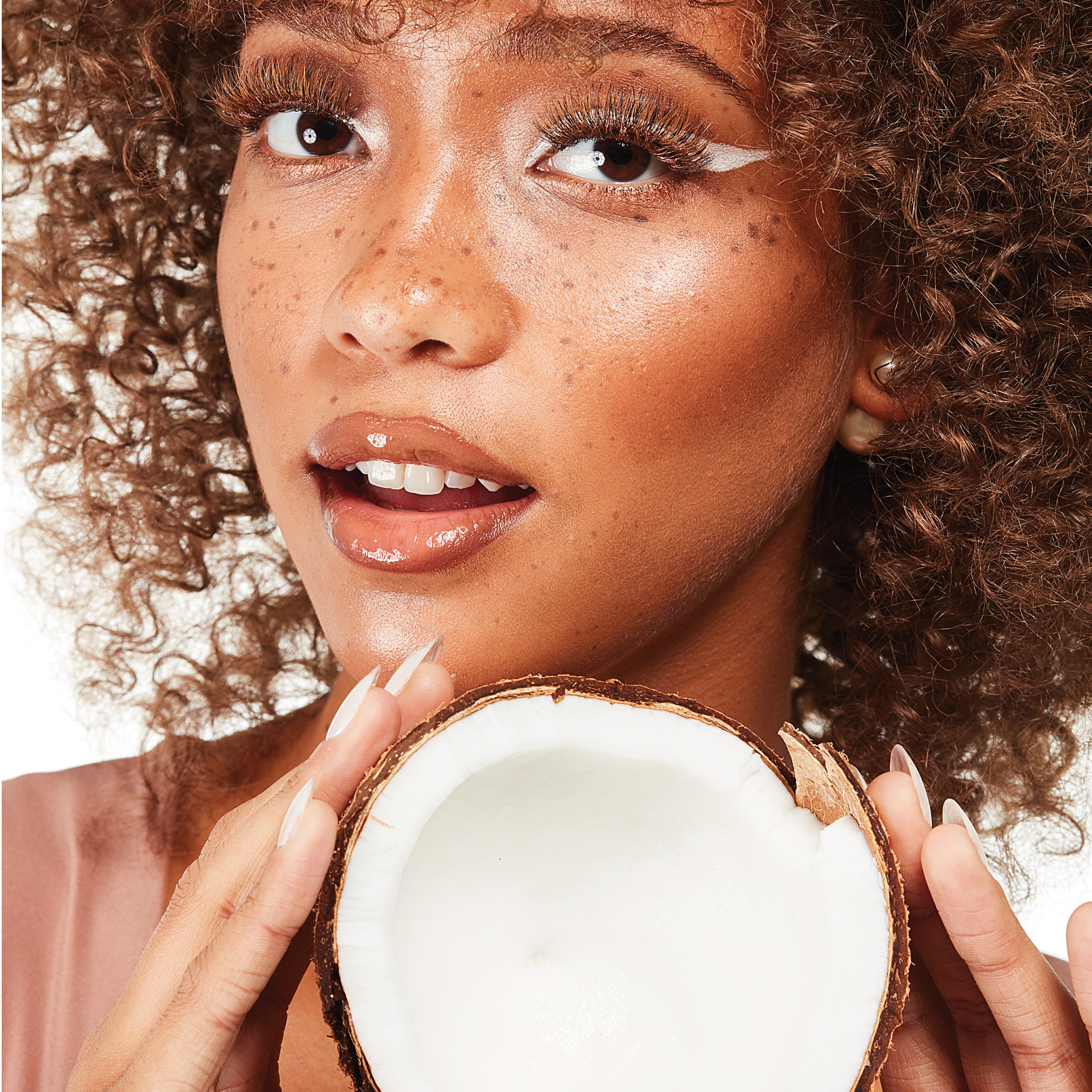Whether you love it or loathe it, coconut oil is an easily accessible product used by many for health and beauty needs.
Although the mixed reviews regarding the health benefits of coconut oil are certainly a thing today, the topic has been a debate for years, even before its popularity. Last year, the
American Heart Association released a report on the dangers of coconut oil and many disagreed.
This year, the claims surface again.
Coconut Oil In Your Diet
Dr. Karin Michels, an adjunct professor of epidemiology at Harvard T.H. Chan School of Public Health recently described coconut oil as,
“pure poison” during a lecture she gave in Germany.
Elaborating further, Michaels went into detail about the health dangers associated with coconut oil, according to her research.
“Coconut oil contains high amounts of saturated fatty acids and it poses a greater risk to heart health than lard,” she said, according to the
T.H. Chan Harvard School of Public Health.
This claim has raised the coconut oil debate again and has many questioning: Do we keep it on the shelves or toss it out?
There are some nutritionists who disagree and encourage the consumption of coconut oil.
Cassie Bjork, a registered dietitian and best-selling author believes the arguments against coconut oil don’t quite add up.
“The main argument for why we shouldn’t consume coconut oil is flawed and not a good reason,” Bjork says. “Especially considering all of the amazing benefits of coconut oil. Coconut oil is healthy because it’s made up of medium-chain triglycerides. This is a fat that is digested quickly and known for their great energy and metabolism-boosting effects. That is why studies show that coconut oil can help with weight loss. It’s also been shown to be antimicrobial, antibacterial, and antiviral. It can promote healthy thyroid function, blood sugar regulation, and help fight off yeast, candida, and fungus. It can also reduce inflammation which is always a good thing.”
Dr. Sanda Moldovan agrees, noting that although coconut oil is a saturated fat, it also has its’ benefits. “
“It has been shown to benefit the good cholesterol, unlike other saturated fats,” the certified Beverly Hills nutritionist and periodontist in says. “Coconut oil also has iron, vitamin E and K.”
Both experts also agree that consuming coconut oil in moderation will keep you healthy.
Some nutritionists, on the other hand, don’t encourage consuming coconut oil at all.
Dr. Ro, nutritionist and author of
Lose Your Final 15, says her concerns stem from the origins of the oil itself.
“Even though coconut oil is derived from a plant and most of its fat is made of lauric acid, which increases good heart-protecting cholesterol, there is no hard evidence that it makes a difference,” Ro says. “What we do know is that anything that potentially increases the risk of heart disease should be reduced if not eliminated.”
For this reason, Dr. Ro suggests that her clients consume more heart-protecting fats.
“Cook and eat more heart-protecting fats such as cold pressed extra virgin olive oil, avocado, safflower, and sunflower oil,” Ro adds. “Use coconut for occasional baking and as a flavor enhancer or addition to other dishes. If you are going to consume it, then use no more than a half tablespoon a day.”
Ultimately, the choice of whether or not to keep coconut oil in your kitchen is up to you. If you choose the later, there are plenty of alternatives to consider.
“Olive oil and avocado oil are made from real foods,” says Bjork. She also suggests avoiding vegetable oils. “They are not made from vegetables, they are inflammatory and one of the worst things for your heart and waistline.”
Dr. Moldovan adds grapeseed oil is a good alternative as well.
If you keep coconut oil in your kitchen or choose to toss it out, make sure you weigh all option and consult your doctor before making a final decision.
Coconut Oil As Part Of Your Beauty Regime
Another place that coconut oil sits, for some, is comfortably on the bathroom shelf. Along with the claims of health benefits, there are beauty benefits too. Coconut oil is known to be used on the skin, hair, and in the mouth for oil pulling. Again, there is encouragement and caution when it comes to using the oil for your beauty needs.
Dr. Victoria Barbosa, Assistant Professor of Dermatology at Rush University and owner of
Millennium Park Dermatology in Chicago, IL isn’t against adding coconut oil to your beauty regime.
“It’s fine to use on the skin,” Barbosa says. “[However] people who are acne-prone should not apply coconut oil to acne- prone areas like the face, chest, or upper back. Some people find that coconut oil makes their skin (increasingly) dry rather than leaving it moisturized.”
In the event that coconut oil dries out the skin, Dr. Barbosa says it is best to go with an alternative.
“Jojoba oil [is good] for the skin,” she adds. “It is similar to our skin’s own oils and it is easily absorbed. Technically, it is a wax, not an oil. It is loaded with vitamins like B complex and E, as well as zinc, copper and selenium. I also find rosehip oil to be light and loaded with antioxidants for those who are not acne prone. It is also nice for mature skin.”
Bottom line, coconut oil is a great option but not a cure-all.
“If you have a skin condition such as eczema, psoriasis, or a skin infection, then seek the advice of a board-certified dermatologist for appropriate treatment options,” Dr. Barbosa concludes.
There is a lot to consider when it comes to deciding if coconut oil is right for you. Before you decide always seek the advice of your health and medical professional. The decision should make you healthy and happy!


